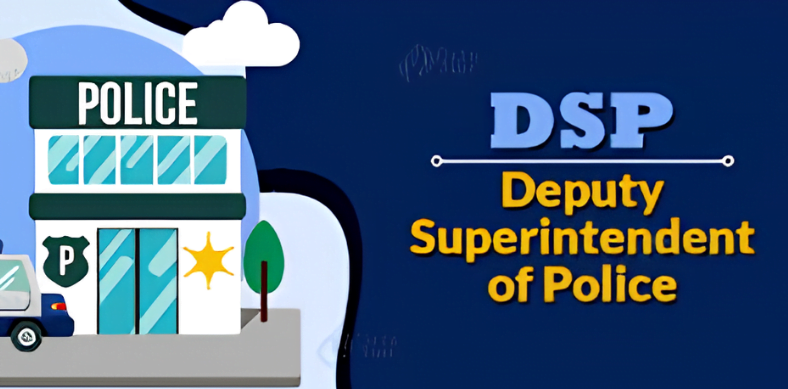
Introduction:
DSP full form: In the dynamic and complex field of law enforcement certain positions play an important job in maintaining law and order, ensuring justice, and protecting communities. One of those positions is the one for the deputy superintendent of Police (DSP) which is an important position within the police force’s the hierarchy. Let’s look into the world of DSP the significance of this position duties, contributions, and responsibilities in law enforcement.
Unveiling DSP: Deputy Superintendent of Police
The understanding of DSP: The Deputy Superintendent of Police (DSP) is a position within the police force hierarchy typically occupying a position of supervisory that is shared between the Superintendent Police (SP) as well as the assistant superintendent of Police (ASP). Based on the structure of the organization and the jurisdiction DSP’s title DSP can be different, but the responsibilities of DSP are generally consistent across the various regions.
The role and responsibilities: The role of the deputy superintendent of Police includes a variety of responsibilities and duties such as:
Law Enforcement the DSPs have the responsibility for enforcing law, ensuring public order, and stopping and investigating crimes in their area of responsibility. They are the police’s chief of staff and collaborate and collaborate with law enforcement organizations in addition to ensuring compliance lawful procedures and guidelines.
Supervision and Administration DSPs supervise the work of subordinate officers as well as personnel under their control, and provide direction, guidance and assistance as required. They oversee resources, assign tasks, and evaluate performances to ensure effective and effective police operations.
Crime Prevention and Investigation: DSPs play a important role in the prevention of crime and detection through the implementation of proactive strategies for policing, conducting patrols, and gathering information regarding criminal activities. They are the ones who oversee the investigation of major crime. They also collaborate with forensic specialists and detectives as well as assist in the pursuit of suspects and find evidence.
Community Engagement They engage in dialogue with their community, create positive connections, and address issues and grievances. They are involved in community outreach activities and awareness campaigns for safety and crime prevention and work with local authorities to tackle the social issues that affect people and increase the safety of the public.
The significance of DSP DSPs plays an integral role in ensuring peace and security, providing the safety of the public, while also ensuring the the law within their areas of jurisdiction. Their expertise, leadership and dedication enhance the credibility and effectiveness that police forces enjoy, gaining the trust and respect that the community they work for. In demonstrating the ideals of professionalism, integrity and accountability DSPs are a key player in the promotion of security, justice and peace within the community.
Conclusion: The Backbone of Law Enforcement
As we traverse the challenges of our contemporary society, we must not forget the significant contributions made by the Deputy Superintendents of Police in protecting our communities, and defending the ideals of equality and justice. With their leadership, dedication and unwavering devotion, DSPs serve as the central point of law enforcement in ensuring peace and order as well as security in a rapidly changing world.


